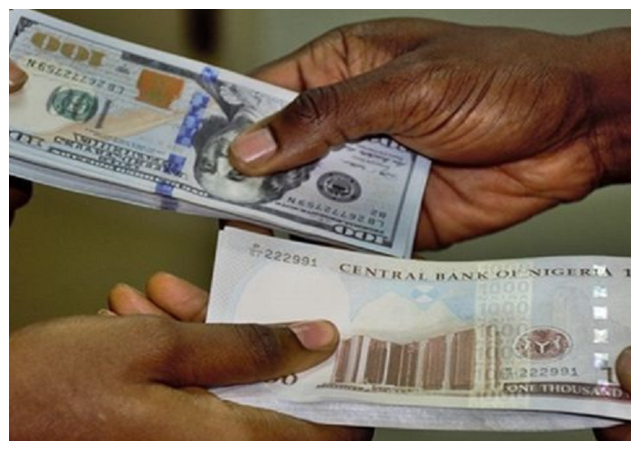
The naira dropped from 860 to 960 per dollar as of Friday, losing N100 in less than three weeks.
The naira’s value has gotten worse, according to research by The PUNCH, due to the growing disparity between the supply and demand of dollars in banks and on the black market.
Before the Central Bank of Nigeria allowed the naira to freely fluctuate against other world currencies in June, the exchange rate at the Investor and Exporter window was 471/$.
The naira, however, increased to 664/$ the following day on June 13, one day after the regulator floated the local currency.
However, the naira quickly started to experience significant volatility in the black market after trading with a narrow spread at both the official I&E window and parallel market.
The local currency fell to 925/dollar in Lagos after surpassing the N900/dollar ceiling at the parallel market last week.
The naira peaked at 799/$ on Friday before closing at 740.60/$ at the I&E forex window. On the parallel market, however, the naira closed at 930 to the dollar in Lagos and 960 to the dollar in Abuja.
The development occurred as banks were being hit by a dollar shortage, with several lenders complaining that they lacked enough dollars to meet customer demand.
The lack of dollars was another complaint made by currency dealers at the parallel market.
The removal of cash deposit restrictions on domiciliary accounts by the CBN in June, according to bank officials, had caused money to be repatriated through banks.
He claimed that as a result, there was a significant gap between the supply and demand for the dollar.
“Some of the dollars are being repatriated through the banks but the demand is still higher than supply because everyone is still sourcing for dollar for imports, PTA, BTA, others,” an official of a lender, who chose to speak on condition of anonymity because he was not authorised to speak on the matter, said,
“Nigerians are still hoarding dollar, customers are still hoarding FX because they don’t trust the policy. Banks are not getting forex supply from the CBN regularly like before,” he added.
Also, an official of tier-1 bank, who pleaded anonymity, said, “Before, the banks used to get dollar from the CBN every week but now, it has reduced drastically; we have not been getting again. Banks are sourcing for forex everywhere. The banks don’t have enough. We have not been getting supply from the CBN for weeks now.”
Aminu Gwadabe, the president of the Association of Bureau De Change Operators of Nigeria, told our correspondent in a conversation that the FX market’s lack of liquidity had continued to see a lot of speculators assault the naira.
He said, “The dwindling supplies in the I&E window shifted the demand to the parallel market where volatility and spikes is most pervasive. The entire forex market is plagued by liquidity shortages.
“The banks, as a result of the supply shortages, are limiting their available position for the financing of visible letters of credit and abandoning the invisible request like PTA, school fees, medicals of their clients and inadvertently adding more pressure in the parallel market.”
He added, “As it is, most licensed BDCs due to their demand for KYC requirement have lost their clients to the parallel and undocumented space with no regulation and standardisation. It is indeed a difficult time for most of our members as we are excluded from the harmonised market.”
Gwadabe suggested remedies, saying Nigerians should strive for a stable exchange rate free of unethical economic practices such arbitrages, hoarding, and panic purchasing.
“ABCON is desirous to partner the apex bank and the Federal Government for an elaborate dialogue and engagement to champion paths to naira recovery,” he said.
In order to integrate BDCs in the harmonised markets, he continued, the financial architecture needs be overhauled.
According to him, the monetary and fiscal authorities should establish supportive laws and regulations.



















